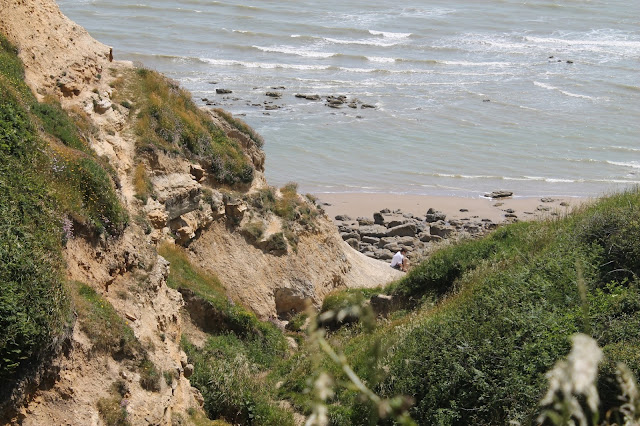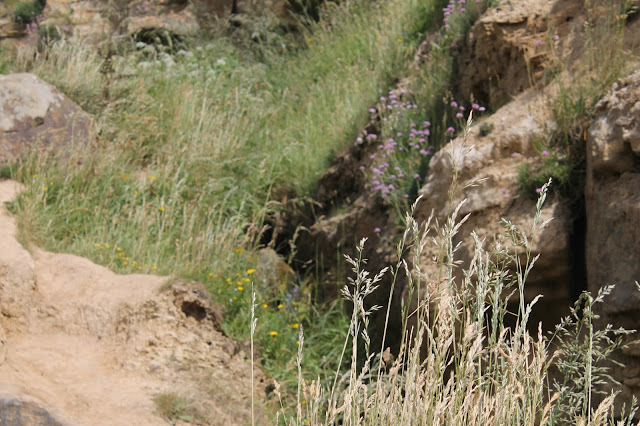The Somali Relief and Development Forum sponsored SOAS Open Iftar Ramadan Tent for the first 10 days of the Holy Month. The initiative led by an inspiring guy named Omar Salha, sought to bring together the homeless and people from an array of different backgrounds to share food, conversation and the Ramadan spirit in the heart of London as Muslims broke their fasts at sunset.
On the very first day, sitting on the floor on the green outside SOAS I was overcome by a strange and an almost unreal sense of déjà vu. I'd been there before. I'd lived through the experience. You know it's crazy in life how things add up, how we somehow come to possess our very own unique sense of intuition along with this incredible ability to connect the dots, to both relate and to an extent relive the same experiences over and over again in completely different contexts and in completely different times.
As I sat quietly on the floor, watching from a distance as a crowd of strangers came together to talk, to laugh and to share, this familiar feeling washed over me, a kind of warmth. I think what made the Ramadan Tent so special, is the opportunities that it created; I think these opportunities were so much greater than perhaps its noble conception imagined.

All my life I've found myself in the midst of very different characters; sharing, laughing, connecting. Those of you who know me will know that a big part of my life has been about connection; trying to connect with others, with moments, with art, with writing, with life, with reality, with myself, most importantly with God. My life has been made and unmade by a never-ending series of (dis)connections and the sheer magic that comes with these. Over the years I've found myself in the strangest of situations, in the most surreal of places; sharing with people idea's, memories, thoughts and perhaps most importantly food. I've shared meals with strangers in underground food joints in Damascus, with diplomats and peacekeepers on fancy tables in Caux, on the cold floors of far-off relatives' houses in Lahore. I've shared food and conversation with colleagues and friends at the wetlands, in day centres, housing estates, in schools, in pharmacies. I've shared hot potatoes with tree-cutters by a bonfire at Saltbox Hill, and breakfasts with strangers in random youth hostels. A space, some food and conversation, these three things can truly bring people together.
Despite all this, my visits to the Ramadan Tent took me back to three quite specific experiences/ times in my life.
1) Back in 2008, I spent a whole year volunteering for the South London Refugee Association. Every Thursday afternoon I would get the bus St Mary's Church in Balham, where I'd help a group of colourful characters who very quickly become like family to me, cook and prepare meals for refugees, asylum seekers and the homeless.
We followed the same routine every Thursday without fail; we'd set up the creche for the children, we'd fold out the tables and line them up, pull out the chairs and when people finally started coming we'd plate up the food and give it out. Often we'd get the same wonderful people coming, people who had in a very short period of time become my friends, my teachers and my guru's. Coming from a whole range of backgrounds, from Iraq to Somalia, each and every individual who came had a story to tell, and I wanted to hear it.
Over lunch I remember listening to some of the most inspiring, beautiful, horrifying and death-defying stories I had ever heard, and what made these stories so incredible were the fact that they were true; the kindest woman you'll ever meet had been the victim of abuse (of every kind); a small girl's father had been shot and killed by a member of the Taliban, a man had lost his entire family to war. These were real people, who'd come through hardships most of us could never begin to imagine. The resilience, the strength, the dignity of these people was more than humbling. St Mary's was a sacred space; a church that every Thursday afternoon would fill up with people from all different faiths, communities and cultures. The availability and accessibility (physical, mental and spiritual) of that space is what rendered it so special. The Ramadan Tent offers that space, and more than that it offers people the opportunity to connect, to share, to experience and to better understand.

2) The Ramadan Tent also brought my first novel, Freegan Freedom to mind. I started writing Freegan Freedom in 2007, it was an incredible journey to undertake. Freegan Freedom explored the relationships between a group of dissimilar Londoners living in an abandoned building brought together by fate and connected through shared anti-materialistic and communitarian ethos. This book is about finding peace and coming to know yourself through others. It's about finding common ground with someone you may believe to be belonging to another world, a world completely apart from your own. One of my favourite parts of this book, is towards the end when the Freegans put together a feast, made up wholly of the waste of others in order to cheer up the protagonist, a searching young homeless lad named Sebastian. It is the fusion of space, conversation and food that brings about this warm and beautiful moment and I sort of believe this moment was, on a level, re-created and came to life at the Ramadan Tent; a space belonging to no-one but everyone too. (Check out past projects if you'd like to buy the book)
3) Last but not least, the Ramadan Tent reminded me of the Tooting Transition Shop, a community arts project I was involved in last year. The shop turned the very idea of a 'shop' on it's head. It became a meeting place in which to collect and exchange experiences, memories, objects, journeys and thoughts about past, present and future everyday life in Tooting. Through performance, film, photography, visual art and text, light was shed on the way we live and exist in a shared space. Again it was about having a space to come together and connect and share: http://vimeo.com/48938206

On the very first day, sitting on the floor on the green outside SOAS I was overcome by a strange and an almost unreal sense of déjà vu. I'd been there before. I'd lived through the experience. You know it's crazy in life how things add up, how we somehow come to possess our very own unique sense of intuition along with this incredible ability to connect the dots, to both relate and to an extent relive the same experiences over and over again in completely different contexts and in completely different times.
As I sat quietly on the floor, watching from a distance as a crowd of strangers came together to talk, to laugh and to share, this familiar feeling washed over me, a kind of warmth. I think what made the Ramadan Tent so special, is the opportunities that it created; I think these opportunities were so much greater than perhaps its noble conception imagined.

All my life I've found myself in the midst of very different characters; sharing, laughing, connecting. Those of you who know me will know that a big part of my life has been about connection; trying to connect with others, with moments, with art, with writing, with life, with reality, with myself, most importantly with God. My life has been made and unmade by a never-ending series of (dis)connections and the sheer magic that comes with these. Over the years I've found myself in the strangest of situations, in the most surreal of places; sharing with people idea's, memories, thoughts and perhaps most importantly food. I've shared meals with strangers in underground food joints in Damascus, with diplomats and peacekeepers on fancy tables in Caux, on the cold floors of far-off relatives' houses in Lahore. I've shared food and conversation with colleagues and friends at the wetlands, in day centres, housing estates, in schools, in pharmacies. I've shared hot potatoes with tree-cutters by a bonfire at Saltbox Hill, and breakfasts with strangers in random youth hostels. A space, some food and conversation, these three things can truly bring people together.
Despite all this, my visits to the Ramadan Tent took me back to three quite specific experiences/ times in my life.
1) Back in 2008, I spent a whole year volunteering for the South London Refugee Association. Every Thursday afternoon I would get the bus St Mary's Church in Balham, where I'd help a group of colourful characters who very quickly become like family to me, cook and prepare meals for refugees, asylum seekers and the homeless.
We followed the same routine every Thursday without fail; we'd set up the creche for the children, we'd fold out the tables and line them up, pull out the chairs and when people finally started coming we'd plate up the food and give it out. Often we'd get the same wonderful people coming, people who had in a very short period of time become my friends, my teachers and my guru's. Coming from a whole range of backgrounds, from Iraq to Somalia, each and every individual who came had a story to tell, and I wanted to hear it.
Over lunch I remember listening to some of the most inspiring, beautiful, horrifying and death-defying stories I had ever heard, and what made these stories so incredible were the fact that they were true; the kindest woman you'll ever meet had been the victim of abuse (of every kind); a small girl's father had been shot and killed by a member of the Taliban, a man had lost his entire family to war. These were real people, who'd come through hardships most of us could never begin to imagine. The resilience, the strength, the dignity of these people was more than humbling. St Mary's was a sacred space; a church that every Thursday afternoon would fill up with people from all different faiths, communities and cultures. The availability and accessibility (physical, mental and spiritual) of that space is what rendered it so special. The Ramadan Tent offers that space, and more than that it offers people the opportunity to connect, to share, to experience and to better understand.

3) Last but not least, the Ramadan Tent reminded me of the Tooting Transition Shop, a community arts project I was involved in last year. The shop turned the very idea of a 'shop' on it's head. It became a meeting place in which to collect and exchange experiences, memories, objects, journeys and thoughts about past, present and future everyday life in Tooting. Through performance, film, photography, visual art and text, light was shed on the way we live and exist in a shared space. Again it was about having a space to come together and connect and share: http://vimeo.com/48938206
The Ramadan Tent was an ambitious project, that was brought to life by all the people involved, not least those who came together to share a meal. A simple, but incredible endeavour.





































